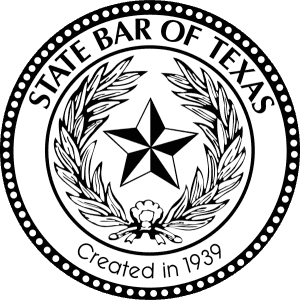What Is A Thirty Day “No Cause” To Quit
Estimated Reading Time: 11.5minutes

Thirty Day “No Cause” To Quit
The law in the state of Nevada requires a landlord to give a tenant a certain amount of time to vacate the property for an eviction when the lease is expired and the landlord wants his legal property vacated. In fact, under the Nevada Revised statutes, a 30-day notice is required to be provided to the tenant who is a monthly tenant (or a seven-day notice if the tenant pays rent weekly) in order to begin the eviction process of a tenant who no longer has a lease.
A “No-Cause” termination notice to vacate can only be used when a tenant is not bound by a lease. The 30-day notice is followed by a five-day notice of unlawful detainer. If the tenant has not vacated the property at that time, a summary eviction will be filed along with lockout instructions to the constable. The 30 days excludes the date that the notice was served. The 30-day notice counts all calendar days 30 days following the date served. Notices under 30 days do not count weekends, legal holidays, or Fridays for purposes of calculating the number of days.
The Thirty Day “No Cause” To Quit notice must be followed by a five-day notice that informs the tenant that they are required to leave because their presence is no longer lawful. The five-day notice is called a “Five-Day Notice of Unlawful Detainer” and if this notice is served after the 30 days expires by a licensed Process Server, the constable will lock the tenant off the property at the expiration of the five days.
Service of The Notice on The Tenant
In order to evict a tenant without cause, who is not under a lease, a person vested with legal authority must serve the tenant with the following two documents at two separate times as follows:
- The landlord must serve Thirty Day “No Cause” To Quit if the tenant pays rent by the month and can serve a Seven Day “No Cause” To Quit if the tenant is a weekly renter pursuant to NRS 40.251(1)(b)(1); and following the expiration of the 30 day the landlord must serve the same tenant with a;
- A Five-Day Notice to Quit for Unlawful Detainer pursuant to NRS 40.254.
It is important to point out that each of these notices is required to be “served “on the tenet by a sheriff, licensed Process Server, constable, or agent of an attorney licensed in Nevada in order for service to be considered valid. In other words, a landlord cannot serve this notice him or herself pursue it to NRS 40.280(1)
These notices are required to conform to the statute very carefully and are almost always the forms provided by the courts. These forms can be located at the civil law self-help center and can be downloaded from https://www.civillawselfhelpcenter.org/self-help/evictions-housing/evictions.
All of these notices must be very specific and filled out accurately. They can be typed or written in legible handwriting. These forms cannot be altered in anyway. If you would like additional information, go to https://www.civillawselfhelpcenter.org/self-help/evictions-housing/evictions.
Requirements of The Notice
The Thirty Day “No Cause” To Quit and Seven Day “No Cause” To Quit notices must contain very specific information and follow very specific guidelines. The notice must state the date the landlord expects the tenant to move which must be at least 30 days after the notice was served not counting the date of service. See NRS 40.251(1)(b)(1)(II) or at least seven days after a seven-day notice is served for a weekly tenant.
If the tenant is a monthly tenant who is 60 years or older and has a mental disability or physical disability, that tenant is provided means by law to request to remain on the rental property for an additional 30 days. Such requests must be in writing to the landlord and provide proof of age or disability. See Nevada revise statute 40.251(2). These rules are codified in the statute below:
NRS 40.251 Unlawful detainer: Possession of property leased for indefinite time after notice to surrender; older person or person with a disability entitled to extension of period of possession upon request; federal worker, tribal worker, state worker or household member of such worker may request extension of period of possession.
1. A tenant of real property, a recreational vehicle or a mobile home for a term less than life is guilty of an unlawful detainer when having leased:
(a) Real property, except as otherwise provided in this section, or a mobile home for an indefinite time, with monthly or other periodic rent reserved, the tenant continues in possession thereof, in person or by subtenant, without the landlord’s consent after the expiration of a notice of:
(1) For tenancies from week to week, at least 7 days;
(2) Except as otherwise provided in subsection 2, for all other periodic tenancies, at least 30 days; or
(3) For tenancies at will, at least 5 days.
(b) A dwelling unit subject to the provisions of chapter 118A of NRS, the tenant continues in possession, in person or by subtenant, without the landlord’s consent after expiration of:
(1) The term of the rental agreement or its termination and, except as otherwise provided in subparagraph (2), the expiration of a notice of:
(I) At least 7 days for tenancies from week to week; and
(II) Except as otherwise provided in subsection 2, at least 30 days for all other periodic tenancies; or
(2) A notice of at least 5 days where the tenant has failed to perform the tenant’s basic or contractual obligations under chapter 118A of NRS.
(c) A mobile home lot subject to the provisions of chapter 118B of NRS, or a lot for a recreational vehicle in an area of a mobile home park other than an area designated as a recreational vehicle lot pursuant to the provisions of subsection 8 of NRS 40.215, the tenant continues in possession, in person or by subtenant, without the landlord’s consent:
(1) After notice has been given pursuant to NRS 118B.115, 118B.170 or 118B.190 and the period of the notice has expired; or
(2) If the person is not a natural person and has received three notices for nonpayment of rent within a 12-month period, immediately upon failure to pay timely rent.
(d) A recreational vehicle lot, the tenant continues in possession, in person or by subtenant, without the landlord’s consent, after the expiration of a notice of at least 5 days.
2. Except as otherwise provided in this section, if a tenant with a periodic tenancy pursuant to paragraph (a) or (b) of subsection 1, other than a tenancy from week to week, is 60 years of age or older or has a physical or mental disability, the tenant may request to be allowed to continue in possession for an additional 30 days beyond the time specified in subsection 1 by submitting a written request for an extended period and providing proof of the tenant’s age or disability. A landlord may not be required to allow a tenant to continue in possession if a shorter notice is provided pursuant to subparagraph (2) of paragraph (b) of subsection 1.
3. Except as otherwise provided in this section, if a tenant with a periodic tenancy pursuant to paragraph (a) or (b) of subsection 1 is a federal worker, tribal worker, state worker or household member of such a worker, the tenant may request to be allowed to continue in possession during the period commencing on the date on which a shutdown begins and ending on the date that is 30 days after the date on which the shutdown ends by submitting a written request for the extended period and providing proof that he or she is a federal worker, tribal worker, state worker or household member of such a worker during the shutdown.
4. Except as otherwise provided in NRS 118A.315, a landlord who receives a request from a tenant pursuant to subsection 3 shall allow a tenant to continue in possession for the period requested.
5. Any notice provided pursuant to paragraph (a) or (b) of subsection 1 must include a statement advising the tenant of the provisions of subsections 2, 3 and 4.
6. If a landlord rejects a request to allow a tenant to continue in possession for an additional 30 days pursuant to subsection 2, the tenant may petition the court for an order to continue in possession for the additional 30 days. If the tenant submits proof to the court that the tenant is entitled to request such an extension, the court may grant the petition and enter an order allowing the tenant to continue in possession for the additional 30 days. If the court denies the petition, the tenant must be allowed to continue in possession for 5 calendar days following the date of entry of the order denying the petition.
(Added to NRS by 1985, 226; A 1989, 1081; 1999, 3195; 2001, 1946; 2003, 2480; 2019, 3177)
Governors Declaration of Emergency Directive 0306 Regarding the Pandemic
Governor Steve Sisolak recently issued another declaration which is entitled Governors Declaration of Emergency Directive 0306. It states that Nevada has instituted another eviction moratorium through March 31, 2021. Under Emergency Directive 0306 most evictions are still allowed to proceed in Nevada at least as of the writing of this blog. The Directive extends to the moratorium on evictions for nonpayment of rent and no cause of actions where the tenant claims and can prove that they are unable to pay rent due to a loss of income from the pandemic. In order to fall under the protections of the moratorium, the onus is upon the tenant to submit the required declaration to the landlord in order to fall under the new moratorium protections. In the declaration, the tenant must state that they are a “covered person” under the new moratorium. Under the directive the tenant must declare the following facts to be true and sign under penalty of perjury in order to be protected by the moratorium:
- The tenant must declare they are unable to pay the full rent because of the medical expenses they have incurred, or for loss of income or work that is directly related to the COVID-19 pandemic.
- The tenant must further declare that they are likely to be homeless if they become evicted and have no family members or anyone that they can reside within the event of eviction.
- Tenant must also declare that they earn less than $99,000 per year or $198,000 if they filed a joint tax return and received a stimulus check.
A tenant that is covered by the moratorium must invoke the protections of the moratorium themselves by filling this declaration under penalty of perjury.
The Federal Government Also Extended the CDC Moratorium
Like the state of Nevada, the federal government also extended the CDC moratorium on eviction but only until January 31, 2021 and also requires the same CDC declaration. Under the federal moratorium, the individual must also declare that they have used their best efforts to obtain available government assistance for rent and must make the same assertions regarding income and stimulus check and must further state that they are unable to pay the rent in full because of a substantial loss of income or hours or layoff due to the pandemic.
It is important to note that rent is only deferred under the moratorium and must be paid in full be the tenant in the future. A judgment can be later obtained against the tenant and executed against them. The moratorium is not a waiver of paying rent forever, only a deferment that must be paid in the future by the tenant.
At TheOneLawyer.com, we are here to serve our community and provide legal services in the Henderson and Las Vegas area. We are a boutique law firm providing experienced and personal representation to injured clients and landlords in need of counsel. At the Law Offices of Laura Payne-Hunt, TheOneLawyer.com we provide professional and personal service to each and every one of our clients on various legal matters and have over 15 years of experience in reviewing insurance policies and in Nevada insurance law. If you have a question regarding any type of personal injury or paying your medical bills from an accident, please do not hesitate to call the offices of TheOneLawyer.com and speak directly to attorney Laura Marie Payne-Hunt, Esq. a Henderson Injury Attorney for over 15 years. Laura is recognized as one of Nevada’s Top 100 Lawyers. She has the experience and knowledge to obtain the maximum settlement you deserve. Please call our office if you or a loved one is injured. We can make sure that you receive the care you need and deserve and advise on how to preserve evidence.
At our office, we are experienced in helping injured victims get the compensation they are entitled to. Insurance companies never have the best interest of the injured person at the top of their priorities. They want to pay as little on every claim as possible. Having worked for an insurance company as an attorney for 9 years before opening my boutique law firm specializing in helping injured people, I have reviewed thousands of auto accident claims and policy provisions.
At the Henderson and Las Vegas Accident injury law offices of TheOneLaweyer.com, Laura Marie Payne-Hunt and her staff are here to help you and your family in the event that accidents and tragedies occur. For any of your legal needs, do not hesitate to contact our Henderson and Las Vegas Accident injury offices. TheOneLawyer.com is a boutique, family-owned law firm that specializes in helping injured people and the community of Las Vegas and Henderson Nevada with legal issues involving auto accidents, wrongful deaths, slip and falls, truck accidents, injuries to children, bicycle accidents, dog bites, product liability claims, and all types of injury claims. Please do not hesitate to call us anytime you have a legal question or you or a loved one has sustained an injury at 702-450-(HUNT) 4868 and text 24/7 at 702-600-0032.










